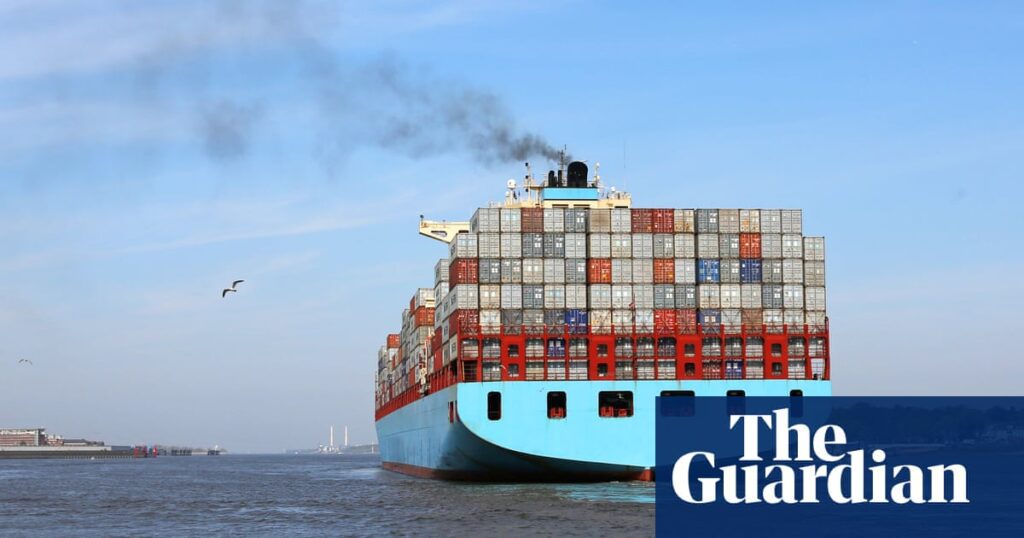The EU appears to be conceding in global discussions about a carbon collection strategy for international shipping, which aims to fund climate initiatives but is now likely to be weakened, particularly affecting vulnerable countries. Instead of mandating direct payments for emissions, the EU is inclined toward a compromise that enables carbon credit trading. Experts warn that this shift reduces funding for nations facing climate disasters and may slow down the decarbonization of shipping fleets. The shipping industry contributes roughly 2.2% of global CO2 emissions, and a proposed fee system is seen as essential for raising billions for climate finance.
The International Maritime Organization (IMO) is currently debating this proposal, which faces resistance from countries like China, Brazil, and Saudi Arabia that fear it will increase consumer prices. China has threatened to withdraw from the IMO if a majority vote is employed for adoption. The EU, after an emergency meeting, supports a straightforward collection method but seems poised to accept a compromise from Singapore that may encourage short-term solutions like biofuels instead of sustainable alternatives such as ammonia.
This compromise has been criticized for lacking stability and failing to promote long-term technology investments. Alternative proposals, such as one from the International Shipping Council (ICS), offer greater flexibility and support from developing countries but struggle to gain consensus due to opposition from certain heavyweight nations. Advocates for a robust climate finance mechanism contend that the current push for consensus may hinder necessary reforms and perpetuate reliance on fossil fuels, undermining efforts to combat climate change effectively.
Source link


